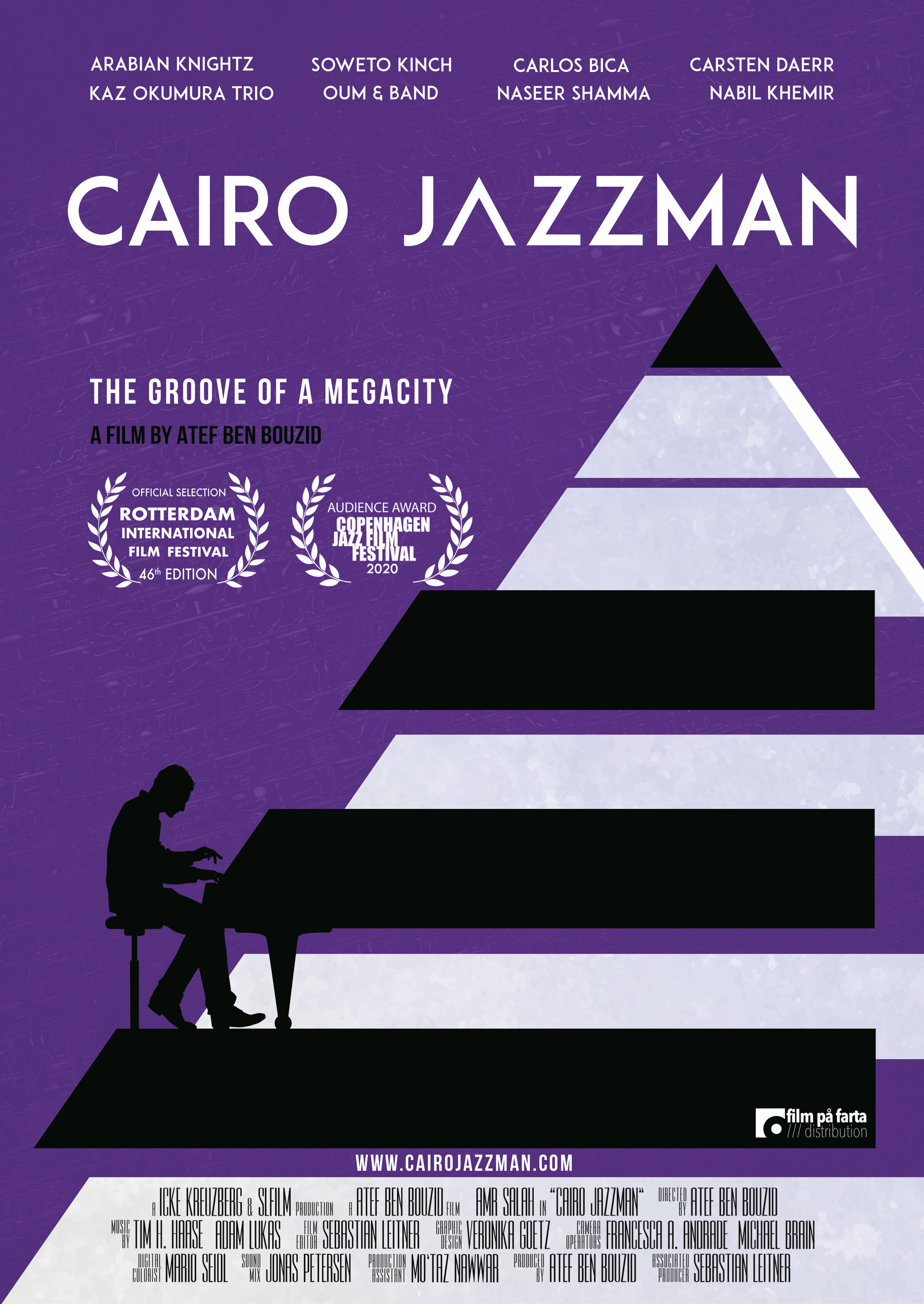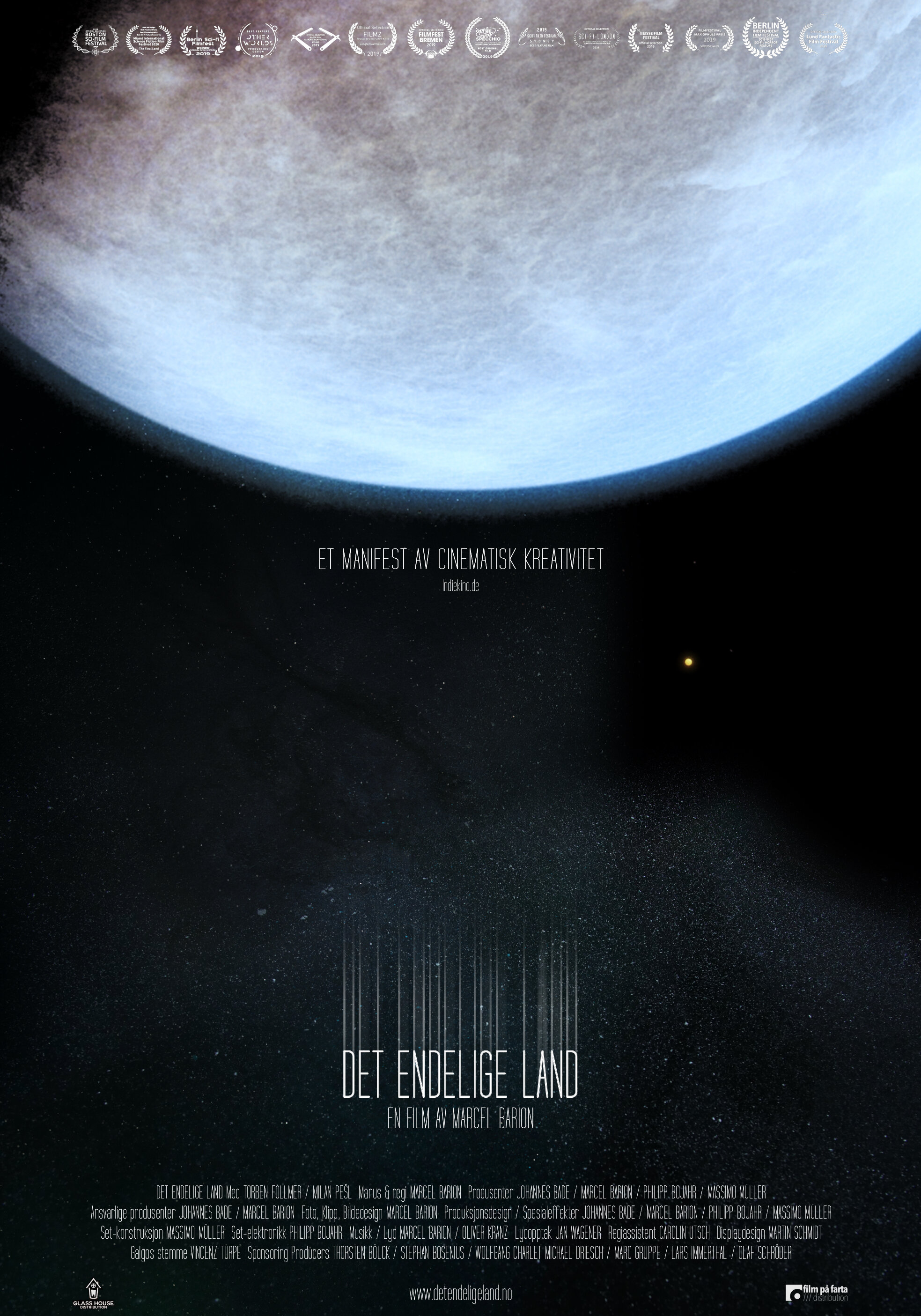rent/buy/stream/download /// LEI/KJØP/strøm/LAST NED
FILM PÅ FARTA plus
“… music fans from all over the world should check out this great documentary.” Elmore Magazine
“One of the best music documentaries I’ve ever seen. Incredibly moving and beautifully put together.” Director’s Notes Top Ten Films List of 2017
“Intoxicating … you won’t want to miss a second.” Rocking Magpie
LATE BLOSSOM BLUES | WOLFGANG ALMER & STEFAN WOLNER | AUSTRIA 2017 | 89 MIN
suitable for all / Tillatt for alle
When 81 year-old Leo “Bud” Welch from the Mississippi backwoods released his debut record “Sabougla Voices” in 2014, it took the Blues world by surprise: Where has this guy been the last 60 years? Why has nobody ever heard of him before?
When he started playing 10-15 shows every month, even getting invitations to Europe and Africa, more questions arised: How is this possible for a guy his age? Who makes all these shows happen?
Answers are given in LATE BLOSSOM BLUES, a feature-length Documentary about Leo “Bud” Welch and his very late rise to stardom. It’s the quintessential Blues story – a story about poverty, about work in the cotton fields and the woods, about The Lord and The Devil, and of course a story about life that reminds us that it’s never too late to live your dream.
LATE BLOSSOM BLUES follows Leo and his manager Vencie Varnado, a Gulf War Veteran, as they balance the tight rope between business and geriatrics, between jet lag and sound check. It also paints a heart- warming portrait of Leo’s small hometown Bruce, MS where Leo’s daily life is still untouched by his late global fame.
Documenting the most exciting times in the life of one of the last real Bluesmen, LATE BLOSSOM BLUES is a film of historic dimension for all music-lovers. It’s a moving account of a hard working man, who, despite all the adversaries, never wavered from his passion and waited more than 70 years to finally live his dream.
///
Når 81 år gamle Leo «Bud» Welch fra Mississippi lanserte sitt debutalbum «Sabougla Voices» i 2014, så overrasket han Bluesverdenen: Hvor hadde denne fyren vært de siste 60 åra? Hvorfor hadde ingen hørt om han før? Når han begynte å spille 10-15 konserter hver måned, og til og med fikk invitasjoner fra Europa og Afrika, dukket det opp flere spørsmål: Hvordan er dette mulig for en mann i hans alder? Hvem organiserer alle disse konsertene?
Svaret er gitt i LATE BLOSSOM BLUES, en dokumentarilm om Leo «Bud» Welch og hans veldig sene vei til berømmelse. Det er den ultimate bluesfortellingen - en fortelling om fattigdom, om arbeidet i bomullsåkrene og skogen, om gud og djevelen, og selvfølgelig en fortelling om livet og at det aldri er for sent å leve ut sin drøm.
LATE BLOSSOM BLUES følger Leo og hans manager Vencie Varnado, en golfkrigsveteran, mens de balanserer på en stram linje mellom business og geriatri, mellom jetlag og lydsjekk. Den maler også et hjertevarmt portrett av Leos lille hjemby Bruce, MS hvor Leos hverdag fortsatt er upåvirket av Leos sene globale berømmelse.
Ved å dokumentere den spennende tiden til en av de siste virkelige Bluesmennene, er LATE BLOSSOM BLUES en film av historiske dimensjoner for alle musikkelskere. Det er et vakkert regnskap over en hardarbeidende mann, som tross alle motstand, aldri vek fra sin lidenskap og som ventet mer enn 70 år på å endelig leve ut sin drøm.
“Atif Ben Bouzid's film about the Cairo Jazz Festival gives unusual and multi-layered insights into the life of civil society in the megacity of Cairo, embedded in jazz as a universal language that unites people and expands horizons.” Jazzinstitut Darmstadt
“With CAIRO JAZZMAN, director and producer Atef Ben Bouzid has made a remarkable debut.” Taz
“Look where prejudices block your view and listen to the wonderful Arab and non-Arab musicians who ultimately play at the festival.” Die Zeit
CAIRO JAZZMAN | ATEF BEN BOUZID | GERMANY 2017 | 82 MIN
suitable for all / Tillatt for alle
“Jazz is more than just a style of music”, says Amr Salah. “It’s about freedom.” Salah, a jazz pianist, is an enthusiastic promoter of the genre. Every year he organises the Cairo Jazz Festival, but doesn’t view himself as a festival director: He is first and foremost a musician and fan. In this music documentary, people close to Salah such as his fellow musicians and proud parents discuss his passion. In Egypt, jazz attracts a conspicuously young audience, emphasising the chasm between them and the older generation who rule the country. The authorities therefore provide almost no support to Salah’s jazz festival. The film follows him during the run-up to the festival and various major and minor problems crop up. “Egypt is full of surprises”, he observes when one of the locations suddenly becomes unavailable mere days before the festival. Luckily, as a jazz musician he is good at improvising.
///
«Jazz er mer enn bare en stil innen musikk», sier Amr Salah. « det handler om frihet». Salah, en jazzpianist, er en entusiatisk promotør for sjangeren. Hvert år arrangerer han Kairo Jazz festival, men han anser ikke seg selv som festivalens direktør. Han er først og fremst en musiker og fan. I denne musikkdokumentaren møter vi folk som står Salah nær, som hans musikkkolleager og stolte foreldre, som diskuterer hans lidenskap. I Egypt tiltrekker jazz et yngre publikum som legger vekt på kløften mellom de og den eldre generasjonen som styrer landet. Derfor får festivalen nesten ingen støtte av den egyptiske regjeringen. Filmen følger ham i forberedelsene til festivalen og flere større og mindre problemer hoper seg opp. « Egypt er full av overraskelser». uttaler han da en av konsertstedene plutselig blir utilgjengelig et par dager før festivalen åpner. Heldigvis er han, som jazzmusiker, god til å improvisere.
“Et manifest av cinematisk kreativitet, sterk og spennende.” Indiekino.de
“En brilliant debutfilm, en visuell fest for øyet og gåtefull science-fiction.” OC Movies
“Brilliant skrevet, utmerket skuespill og fabelaktig filmet.” Horror DNA
DET ENDELIGE LAND (DAS LETZTE LAND) | MARCEL BARION | TYSKLAND 2019 | 113MIN
Age: 12/ Alder: 12
Two men flee from a desolate planet in a small old spaceship and embark on a quest for a new home. On their search for a better place, the two are drawn increasingly in fundamentally different directions. While Adem wants to find out where the ship actually comes from and what happened to the old crew, Novak is drawn more and more into the spell of a hypnotic power...
///
To lovløse på flukt snubler over et gammelt og forlatt romskip. I siste minutt klarer de å unnslippe sine forfølgere og reiser ut i verdensrommet med det gamle skipet på jakt etter et nytt hjem. På reisen beveger mennene seg i to ulike retninger. Mens Adam søker i skipets gåtefulle fortid, blir Novak mer og mer dratt inn i en hypnotisk forbannelse...
“DIE NARBE is a fascinating film, showing the former demarcation line in real time […]. The film’s underlying soundtrack is adding to the drive. Percussionist FM EINHEIT, former member of Einstuerzende Neubauten, built soundscapes while incorporating some compositions by soundpioneer Klaus Wiese.
[…] the wall not only remains visible physically – as relict and memorial to an inhuman division. It survived in the mind of the filmmaker, who stands in for many others who internalized this divide.
[…] von Harder turns it into a journey into the past, inspiring questions that lead beyond – since he made the decision not to explain, giving priority to visual immersion.” Realeyt.tv/Lotterliebe
THE END OF DUALITY -THE SCAR PROJECT
EXPERIMENTAL POETIC SINGLE SHOT DOCUMENTARY FILM PROJECT IN TWO PARTS ///
PART I: SCAR BERLIN, 78 MIN, 2009
A film dealing with the former division of the city of Berlin into East Berlin, the capital of the GDR, and West Berlin, a symbol for Western freedom of thought and movement. The Berlin Wall was carved into the landscape in 1961 and fell in a peaceful revolution in 1989. More than twenty years after the eradication of the German divide, The Scar features the total length of the approximately 160 km-long former Death-Strip isolating West Berlin within the East German State: this heavily guarded zone, between 70 and 500 meters wide, running the length of the Wall, reinforced the "antifascist protection bulwark". Filmmaker and visual artist Burkhard von Harder has enlisted the aid of a helicopter and pilot to follow the precise course of the former dividing line. Starting and ending at Schönefeld airport, this real time film document shows the "Scar" still in the process of healing. The attempt to find the "path" is akin to the attempt to recall permanently the past as part of the struggle of contemporary German society to comprehend its history. The land itself carries invisible traces of what has been written on the ground. It is the retracing of the trace that is the intent of this film. By doing so, Burkhard von Harder seeks to create a meditation on the past and perform an act of cinematic healing.
“Strong work - congratulations!” Ai Weiwei
”This movie is completely like poetry.” Li Xianting, Chinese Contemporary Art Critic and organizer of the Beijing Independent Film Festival
”An unbelievable project for peace got off the ground.” Irms Duschl, Artist
”Breathtaking!” Andrew Robb, Minister of Trade and Investment, Australia
”A film for the 22nd century” Chinese Buddhist Visitor
THE END OF DUALITY -THE SCAR PROJECT
EXPERIMENTAL POETIC SINGLE SHOT DOCUMENTARY FILM PROJECT IN TWO PARTS ///
PART II: SCAR GERMANY, 967 MIN, 2009-2014
As part of the Iron Curtain that ran from the Black Sea to Finland with an overall length of approx. 8500 km, the inner german border was splitting the country itself. The camera is following this line as close as possible, sometimes getting lost. The aim is to produce one single uninterrupted movement - in its entire length the film may have as few as 50 cuts (alone due to the need of refueling the helicopter). Slowly the camera follows the line below through the four seasons in the course of more than three years: what appeared to be a line proofs to be a cycle that morphs into a spiral, indicating change. Slow film - slow music: Important to the integrity of the work is its mesmerizing soundtrack, matching 16 hours of constant image flow with 16 hours of drone music, composed and performed by the late Klaus Wiese (1942-2009). A brief historic voice recording by Otto von Bismarck is referencing the time span of a 100 years (1889-1989), setting the tone, other than that the installation is envisioned as empty canvas the viewer is invited to fill him/herself.





